Over the last 5 years, numerous new manufacturers have sprung up with huge marketing budgets telling you how important it is to use their product in order to have healthy hens. So are they right?
This page covers:
- The vitamin requirements of chickens
- What vitamin supplements to buy
- The best places to buy them from
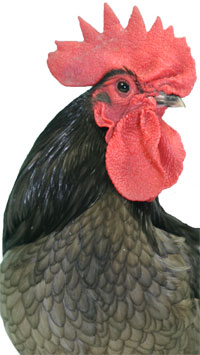 A Chicken’s Needs
A Chicken’s Needs
There was a lot of research done in the 1950’s and 60’s on vitamins for commercial laying flocks and thanks to this, we now understand the vitamin needs of chickens a little more.
Most vitamins are essential to a chickens health and growth and it doesn’t really matter how they get these. Modern feeds contain a multitude of chicken vitamins and of course if you provide your hens with fresh greens and free range, in truth, they probably don’t need an additional top up of vitamins however there will always be times when a vitamin supplement is useful, for example:
- At times of stress: changes to their environment, returning from a show, introducing new chickens and so on can cause chickens to lose their appetite.
- During very cold weather: extra protein and vitamins are required to produce heat during the cold.
- Breeding Chickens: Specialist breeders feeds are available which contain extra vitamins.
- Chicks and growers: have high nutritional needs. Multivitamins in the water are ideal for getting chicks off to a good start and helping them with the stress of moving accommodation as they grow.
- Poorly birds: If birds are stressed, their immune system suffers which opens them up to picking up a disease. Multivitamins are useful to help birds get through sickness.
What Vitamins to buy
There are many different vitamin supplements available for chickens and some are very expensive. The more expensive products are also the ones that have big marketing budgets. Whilst I don’t doubt these products are very good for your birds, I would consider whether they really need this level of vitamin supplement when some people only use a basic supplement based on the fact that modern poultry feeds and fresh greens contain what is required.
Where to buy vitamins
 The cheapest way I have found to buy poultry vitamins is on-line. There is a good range of vitamin supplement, including some that won’t break the bank on this Amazon page.
The cheapest way I have found to buy poultry vitamins is on-line. There is a good range of vitamin supplement, including some that won’t break the bank on this Amazon page.
One or two vitamin supplements can usually be found for sale in pet shops and farm stores, however they are usually limited in what they stock and will often feature the more expensive products.
Do you have any advice on using vitamins for chickens? Please leave me a comment below.

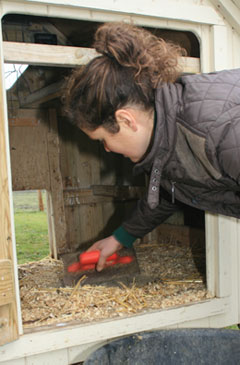
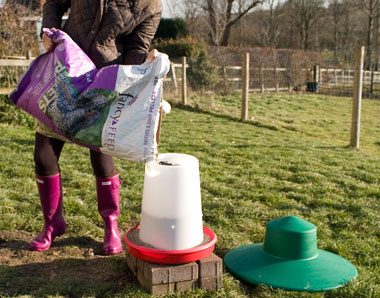
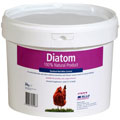
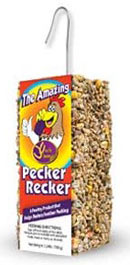
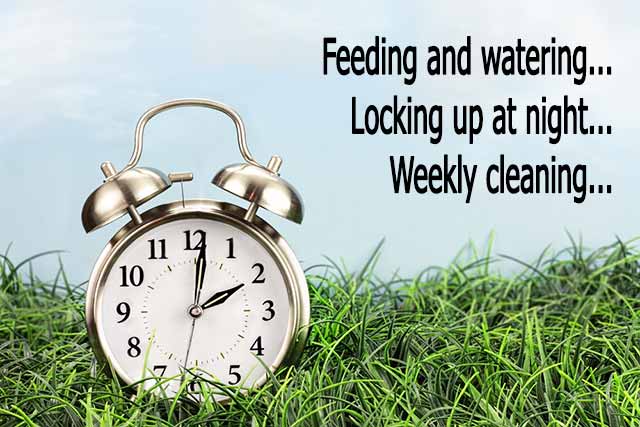
I’m worried about my young silkie hen she’s roughly 9 months old and started laying, she laid about 13 eggs before going broody and she’s been broody for weeks and every time she comes out she pecks and chases my other 2 silkie hens and I have no idea why ive tried to discipline her but nothing’s working I don’t know what to do?
Silkie hens are notorious for being very good broody hens! This can be a pain if you don’t want them to be broody.
Once broody, it takes a little while to ‘break’ a hen. They can have a very strong will. There are various methods, some kinder than others… but the first one I use is to hold her chest and feet in a bucket of cold water. Once the feathers are soaked, the hen will spend some time cleaning them up and drying off. Keep her locked out of the hen house or separated from the flock if they are laying.
Sometimes, this is enough to cool her off and distract her, sometimes….
If not, I will resort to more drastic measures – I use a dog crate on a cold concrete floor in our garage. There should only be food and water in there, no nesting materials. Given 3-4 days in this environment is usually enough to break the behaviour.
I don’t keep Silkie’s so I don’t know how strong the urge will be.. probably quite strong.